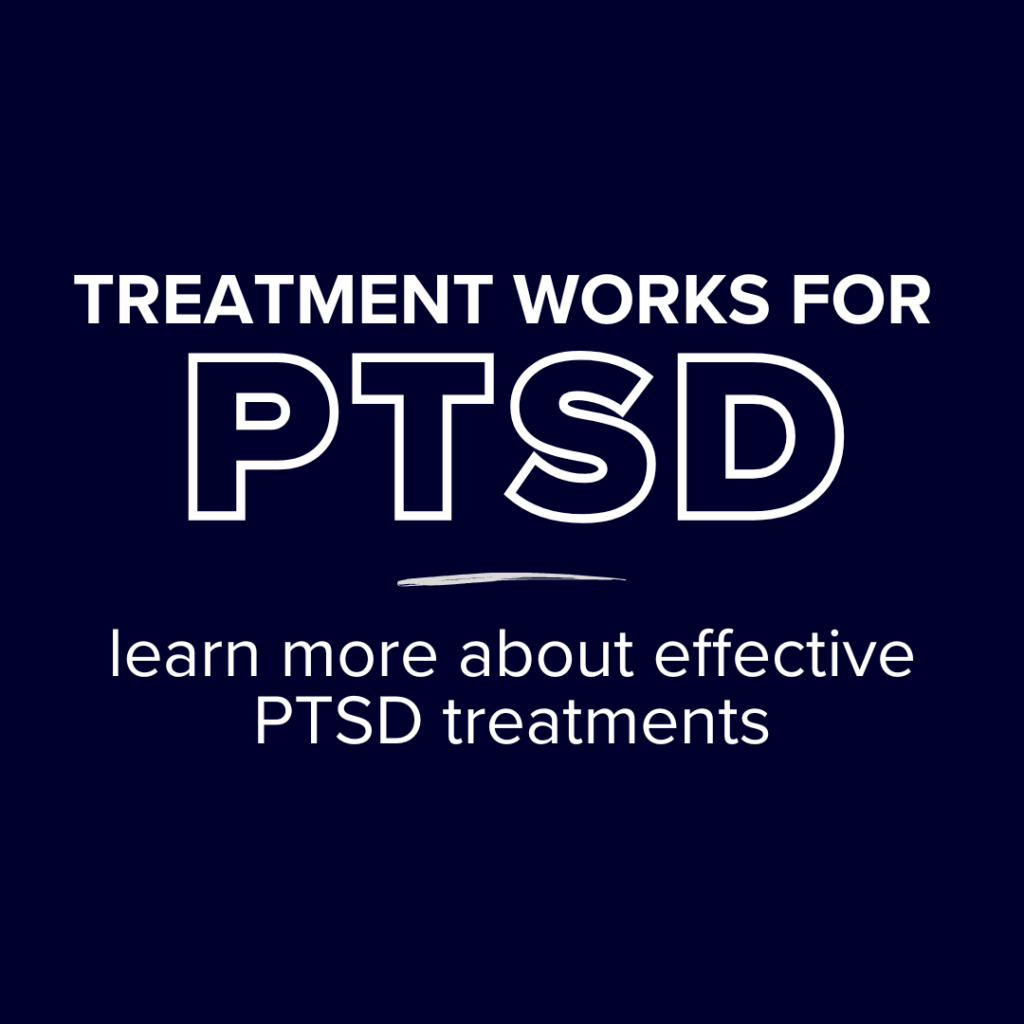PTSD is treatable.

There are multiple treatment options that have been proven effective for treating Posttraumatic Stress Disorder (PTSD). Our Cohen Clinics utilize evidenced-based treatments to treat PTSD. These treatments are the current, best therapy options available based on research. They are considered ‘gold standard’ treatments, meaning they have the highest level of research evidence to support their use.
Prolonged Exposure Therapy (PE)
PE is a research-supported, short-term, effective therapy to address symptoms of PTSD. It helps you process traumatic events through gradual and repeated exposure to trauma-related memories, emotions, and situations. PE is typically 8-15 weekly sessions.
Counseling Sessions Focus On:
- Learning about symptoms of PTSD
- Learning breathing techniques to manage distress
- Imaginal exposure: Repeatedly revisiting the traumatic memory in a safe environment, describing the event aloud in detail
- In vivo exposure: Repeatedly engaging in activities, situations, or behaviors that have been avoided since the trauma, but are not normally dangerous
Goals Include:
- Reengaging with people, places, activities, and thoughts you have been avoiding
- Improving your feelings of safety, competence and well-being
- Developing healthier and more realistic ways of seeing the world
- Changing unhealthy, unhelpful behavioral patterns
Cognitive Processing Therapy (CPT)
CPT is a short-term therapy to address symptoms of PTSD. This treatment targets ways of thinking that might keep you “stuck” in your PTSD. It works by teaching you how to think through your stuck points and consider new, more balanced ways of thinking. CPT is typically 12 weekly sessions.
Counseling Sessions Focus On:
- Identifying negative thoughts and feelings
- Learning skills to evaluate your thinking
- Considering alternate views of the trauma, yourself and the world
Goals Include:
- Feeling the natural emotions associated with the traumatic event
- Recognizing inaccurate and unhelpful trauma-related thoughts
- Developing skills that can be used in the future to promote recovery and effective coping
Eye Movement Desensitization and Reprocessing (EMDR)
EMDR helps process trauma-related memories, thoughts and feelings. This treatment helps process the trauma by moving your eyes in a specific way while processing traumatic memories. EMDR is typically 12 weekly sessions. Counseling sessions focus on identifying traumatic memories to focus on and learning new coping skills. Learn more about EMDR.
Written Exposure Therapy (WET)
WET is a focused, evidence-based therapy designed to address PTSD by enabling you to confront and process traumatic experiences through structured writing exercises. This brief treatment is an effective method to mitigate PTSD symptoms and promote healing. WET typically involves 5 weekly sessions.
Counseling Sessions Focus On:
- Understanding PTSD and its symptoms
- Engaging in trauma writing exercises
- Discussing the writing experience with a therapist
- Developing new, healthier ways to perceive the traumatic event
Goals Include:
- Processing traumatic memories to reduce emotional distress
- Improving emotional resilience when recalling the trauma
- Cultivating healthier ways to understand and integrate the trauma into your life narrative
